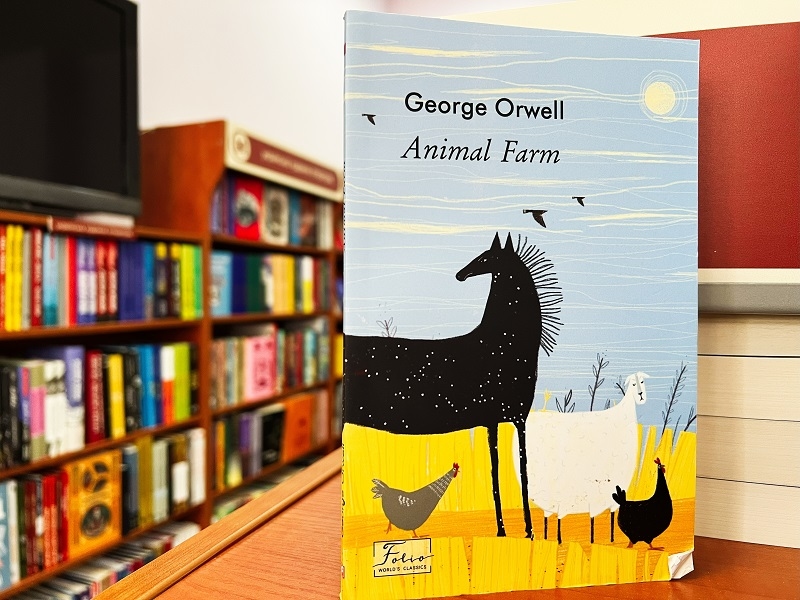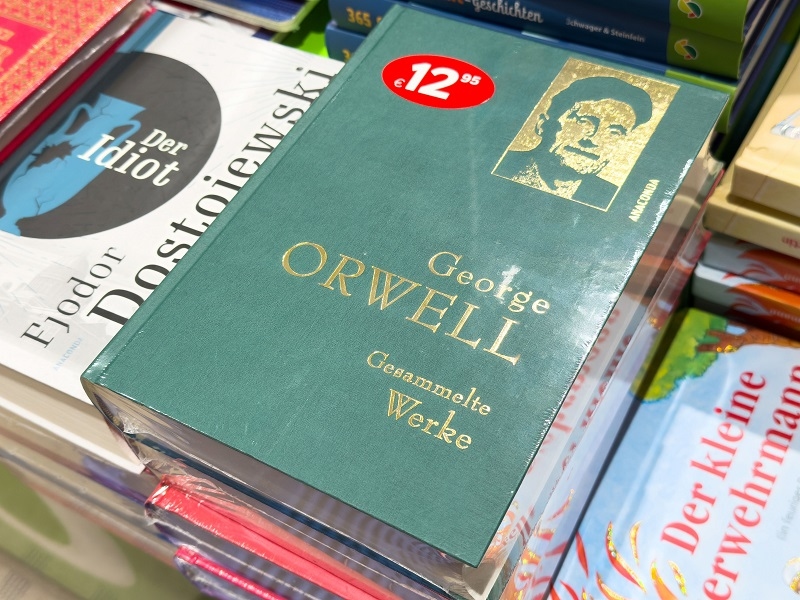
George Orwell is one of those writers you don’t just read—you wrestle with him. His books stick in your mind, sometimes uncomfortably, because they’re not just stories. They’re warnings. They’re questions we can’t stop asking. When people talk about the most powerful George Orwell works, they usually mean 1984 or Animal Farm. Fair. Those are the big ones. But Orwell wrote much more, and a lot of it is just as sharp, just as relevant.
So why are we still reading him in 2025? Because nothing he wrote feels outdated. Surveillance, propaganda, inequality—they’re still here, just dressed in new clothes. He wasn’t writing prophecies. He was writing patterns. And those patterns repeat. That’s why 1984 still sells, why Animal Farm still gets taught, and why even his smaller works deserve attention.
So, here’s a run-through of ten Orwell picks that matter. Some are novels, some are essays, some fall somewhere in between. All of them still make you stop and think.
This one’s the obvious choice, but skipping it would be ridiculous. A gray, suffocating world where even your thoughts aren’t private. The phrases—Big Brother, doublethink, Newspeak—have become part of everyday language. You finish this book uneasy because it doesn’t feel like pure fiction. It feels like a warning label we ignored. It’s the heavyweight champ of books like 1984, and it still lands every punch.
It looks like a fable about pigs and horses, but it’s anything but cute. The animals throw off their human oppressors, only to end up ruled by pigs who are just as bad, maybe worse. The line “All animals are equal, but some animals are more equal than others” still gets quoted today for a reason. Digging into Animal Farm themes, you realize it’s not only about one revolution—it’s about the way power twists people, over and over again.
This one’s personal. Orwell went to Spain to fight fascism and came back with a book that mixes hope, chaos, betrayal, and exhaustion. It’s messy because war is messy. There’s bravery, but also pettiness and infighting. That honesty makes it one of the most powerful firsthand accounts of political struggle. If you want Orwell novels explained through his own eyes, this is as close as you’ll get.
Poverty is often invisible until someone drags it into the light. Orwell did exactly that here. He writes about filthy kitchens, endless shifts, cheap lodgings, and hunger. It’s not romantic. It’s not neat. But it’s true. This book isn’t fiction exactly, but it shows his style: direct, raw, empathetic. For anyone searching for political fiction recommendations, this is proof that politics isn’t just policy—it’s lived experience.
Orwell spent time as a colonial officer in Burma, and this novel pulls from that. It’s not flattering. It’s bitter, angry, and exposes the rot of imperialism. The racism, corruption, the claustrophobic expat world—it’s all there. Orwell wasn’t afraid to turn the lens back on the empire itself. Out of all the George Orwell works, this one feels like an uncomfortable confession about a system he knew from the inside.

Half documentary, half essay, all Orwell. He dives into the coal mines of northern England, recording the lives of workers with brutal honesty. Then he pivots into a long discussion on socialism—its promise and its problems. Some readers find that jarring, but it shows him grappling with ideas in real time. If you’re curious about Orwell’s influence on dystopia, this book is like a backstage pass. You see where his obsessions with class and power began.
This is Orwell at his most cynical about money. Gordon Comstock, the main character, despises capitalism, despises advertising, despises respectability. He wants to be free, but his rejection of money drags him into poverty and bitterness. The aspidistra plant—boring, ordinary—becomes a symbol of middle-class life he can’t quite escape. It’s one of those overlooked novels that deserves a second look if you want Orwell novels explained beyond the famous two.
George Bowling is middle-aged, overweight, and nostalgic. He looks back at the calm days of his youth while sensing the storm of war approaching. It’s quieter than Orwell’s other books, more personal, but that looming dread makes it resonate. Out of all the George Orwell works, this one feels eerily relatable—caught between what was and what’s about to be lost.
If you only know Orwell through his novels, his essays will surprise you. They’re sharp, funny, angry, precise. “Politics and the English Language” is still one of the best guides for clear writing. “Why I Write” is basically his manifesto. He wrote about toads, language, politics, and somehow tied them all together. For readers who want political fiction recommendations but also crave sharp nonfiction, the essays are gold.
It’s short, it’s an essay, and it’s unforgettable. Orwell recalls being in Burma, pressured by a crowd to shoot an elephant he doesn’t want to kill. He does it, not out of duty, but because of the weight of expectation. It’s about power, control, and how authority crushes not only the oppressed but also the one in charge. A small piece, but it speaks volumes about Orwell’s influence on dystopia and his obsession with power.
Don’t feel pressured to jump into the heavy stuff first. If you want quick impact, Animal Farm is short and sharp. If you’re ready for something heavier, go with 1984. For a glimpse of Orwell the person, not just the writer, try Down and Out in Paris and London. And if you’re curious about how his ideas formed, The Road to Wigan Pier is worth it. There’s no wrong order—just dive in.
It’s easy to think of Orwell as this stern prophet of doom, always warning us about politics and power. But his writing shows flashes of humor, tenderness, and deep empathy. In essays about food, language, or even toads in spring, he reveals himself as a man who noticed the little things as much as the big ones. That balance—the political and the personal—is what makes him so readable. He wasn’t just hammering at ideas; he was also trying to connect, to show that even in grim times, humanity matters.
Orwell didn’t write to comfort. He wrote to confront. That’s what makes his books so durable. They still sting, still spark debate, still force us to look at things we’d rather ignore. From the pigs of Animal Farm to the gray streets of 1984, his words don’t fade—they echo.
So whether you’re cracking open a classic or hunting for one of the less-famous titles, remember: Orwell never meant for his books to sit quietly on a shelf. They’re meant to make noise.
This content was created by AI